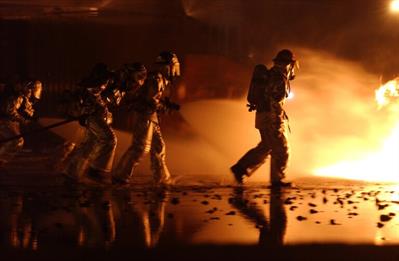Firefighter Awarded Workers’ Compensation for Post-Traumatic Stress

Homewood Firefighter is Awarded Workers’ Compensation Benefits for Post-Traumatic Stress Disorder
In a recent decision issued by the Illinois Appellate Court (Scott Moran v. the Illinois Worker’s Compensation Commission), the Court found that the claimant, Moran, was entitled to worker’s compensation benefits after suffering from post-traumatic stress disorder following the death of a fellow firefighter that was under his command.
Moran was the commanding officer at the scene of a house fire on March 30, 2010. Following a sudden flashover, Moran witnessed firefighters coming out of the burning house dragging fellow firefighter, Brian Carey, who was severely injured. Moran called to secure an ambulance for Carey and continued to supervise the scene. Moran and his department were later informed that Carey had died from his injuries. Following this incident Moran was diagnosed and treated for Post-Traumatic Stress Disorder.
In order to recover for psychological injury that stems from a work related stressor, a claimant must show that he suffered a sudden, severe emotional shock that produced a psychological injury. Moran was denied benefits at Arbitration. The Arbitrator held that Moran did not experience a sudden, severe emotional shock because he did not sustain a physical injury, did not witness the death and nor was involved in rescue or resuscitation efforts. In making her decision, the Arbitrator compared the claimant with other firefighters, rather than the general public and found that his “injury was dependent on his peculiar vicissitudes as he related to his work environment.” In other words, the risk of another firefighter dying at the scene is a risk that is common to all firefighters. The Arbitrator’s decision was affirmed by the Commission and subsequently affirmed by the Circuit Court. Moran filed an appeal to the Appellate Court.
The Appellate Court reversed and remanded the decision back to the Commission. The Court held that the proper standard was to compare the claimant to an objective, reasonable person standard, rather than the subjective standard (other firefighters), used by the Arbitrator. The Court found that the Moran’s psychological injuries stemmed from a single, traumatic event and that Moran’s presence outside the house does not preclude the event from being traumatic. Moran was in command of the fire, instructed the crew, saw Carey dragged from the house, supervised the scene and obtained medical care for Carey. The Court further noted that — “Clearly, this is not the kind of event that an employee would be subject to during the normal course of employment.”
This decision is a great victory for Illinois first responders, who not only risk their physical health but also their mental health while working to keep us safe. PTSD and other psychological disorders caused by a traumatic work incident are often heavily disputed by insurance companies and highly complex. If you or a loved one suffers from work-related PTSD, it is important that you contact an experienced and knowledgeable attorney to protect your rights.
